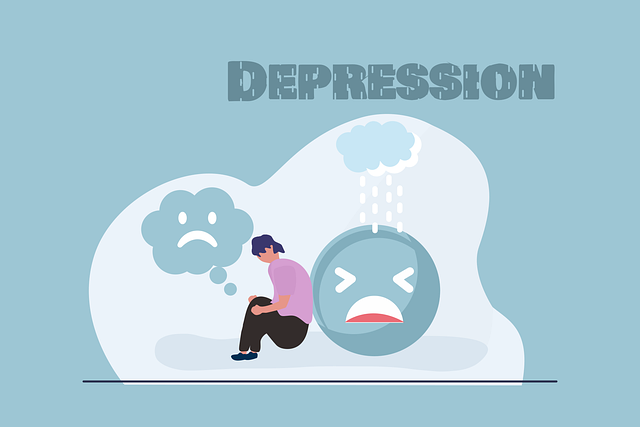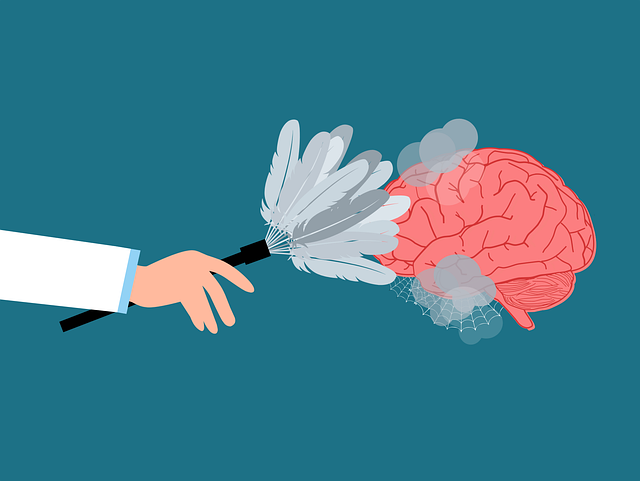Burnout among healthcare providers is a growing issue, exacerbated by high-stress environments and heavy patient loads, leading to chronic fatigue, decreased job satisfaction, and emotional exhaustion. Wheat Ridge Depression Therapy offers a comprehensive solution through collaborative models emphasizing self-care, professional development, and open communication. Their holistic approach combines therapy sessions, support groups, Mental Wellness Coaching Programs, and advocacy for mental health policies that promote work-life balance. By building resilience and implementing evidence-based stress reduction techniques, Wheat Ridge Depression Therapy aims to prevent burnout, enhance well-being, maintain job satisfaction, and ultimately improve patient care and healthcare system sustainability.
Healthcare provider burnout is a growing concern, impacting not only individual well-being but also patient care. This article explores comprehensive strategies to prevent burnout among healthcare professionals. We delve into recognizing burnout’s subtle signs and underlying causes, offering practical solutions for clinical settings. Furthermore, we highlight the pivotal role of Wheat Ridge Depression Therapy in fostering resilience and promoting holistic well-being for medical personnel, emphasizing its impact as a game-changer in combating burnout.
- Recognizing Burnout Among Healthcare Providers: Symptoms and Causes
- Implementing Effective Burnout Prevention Strategies in Clinical Settings
- The Role of Wheat Ridge Depression Therapy in Promoting Resiliency and Well-being
Recognizing Burnout Among Healthcare Providers: Symptoms and Causes

Burnout among healthcare providers is a growing concern, impacting not only individual practitioners but also patient care and the overall healthcare system. Recognizing burnout early is crucial for effective intervention and prevention. Healthcare professionals may exhibit various symptoms, such as chronic fatigue, decreased job satisfaction, and emotional exhaustion. These signs often stem from prolonged exposure to high-stress work environments and overwhelming patient loads.
The causes of burnout are multifaceted. Emotional demands, long working hours, and a lack of control over one’s work can contribute significantly. Additionally, the constant need for emotional resilience in caring for others may lead to neglect of individual emotional well-being. Promoting techniques that foster emotional healing processes and enhance emotional intelligence can be game-changers in preventing burnout. These include therapy sessions, support groups, and self-care practices tailored to meet the unique needs of healthcare providers in Wheat Ridge Depression Therapy.
Implementing Effective Burnout Prevention Strategies in Clinical Settings

In clinical settings, implementing effective burnout prevention strategies is paramount to ensuring the well-being of healthcare providers. Wheat Ridge Depression Therapy offers a compelling model for addressing this pressing issue. Through collaborative efforts, mental health professionals can foster a supportive work environment that prioritizes self-care, professional development, and open communication. This includes integrating Mental Wellness Coaching Programs Development to provide personalized guidance and support, as well as implementing policies that promote work-life balance, such as flexible schedules and clear boundaries between professional and personal time.
A key component of burnout prevention is the promotion of a robust Mental Health Policy Analysis and Advocacy framework. By encouraging open dialogue about mental health challenges within the workplace, healthcare organizations can dispel stigma and create safe spaces for discussion. This not only enhances the mental wellness of individual providers but also contributes to a collective culture that values holistic well-being. Such initiatives are crucial in sustaining a dedicated and resilient workforce, ensuring high-quality patient care, and ultimately, improving overall healthcare outcomes.
The Role of Wheat Ridge Depression Therapy in Promoting Resiliency and Well-being

Wheat Ridge Depression Therapy offers a holistic approach to burnout prevention, focusing on building resilience and promoting well-being among healthcare providers. Through various evidence-based techniques, this therapy aims to equip professionals with effective stress reduction methods. By addressing underlying emotional challenges and providing crisis intervention guidance, it fosters a sense of balance and equilibrium. The program delves into mood management strategies, teaching practitioners how to recognize and regulate their emotions, ultimately enhancing their ability to cope with the demands of their careers.
This specialized therapy recognizes that healthcare providers are at a higher risk of burnout due to the intense emotional labor they undertake. By implementing personalized interventions, it supports their mental health and enables them to navigate challenging situations more effectively. As a result, practitioners can maintain their passion, compassion, and overall satisfaction in their roles, contributing to better patient care and a more sustainable healthcare system.
Healthcare provider burnout is a pressing issue, but with the right strategies, it can be prevented. By recognizing symptoms and understanding causes, clinical settings can implement effective measures. Wheat Ridge Depression Therapy plays a vital role in promoting resilience and overall well-being among healthcare workers, offering a promising approach to navigating this challenging landscape. Embracing these strategies ensures a healthier, more sustainable workforce dedicated to patient care.














